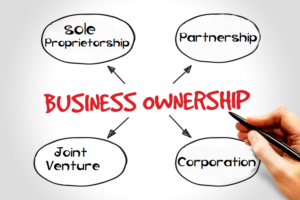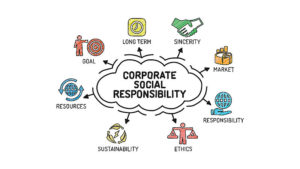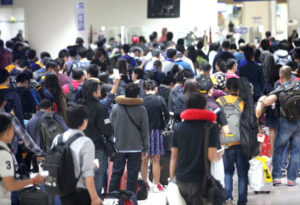The topics below may be relevant to your daily activities, especially those which involve business law, labor law, and other legal areas of your business.
Business Law and Labor Law Updates
Types of Businesses: Their Advantages and Disadvantages

In putting up a business, a person has a lot to consider before finally deciding on what business he would undertake. One of the things he/she must consider is the type of business organization he/she wants to establish. The basic types of business organizations are the following: (1) Sole Proprietorship, (2) Partnership, (3) Joint Venture, and (4) Corporation. Each type of business organizations has their advantages and disadvantages that can help a person decide what type of business will suit his/her preference.
Understanding the Doctrine of Corporate Social Responsibility

Nowadays, Corporations are mindful of the fact that their businesses do not merely affect the interests of their shareholders, directors, officers and employees, but also, have an impact to the public in general. It is believed that corporate governance practices in this jurisdiction cannot disregard the different stakeholders in the corporation. It is the intent of the legislature to encourage social and civil responsibility of corporations. Hence, the importance of Corporate Social Responsibility is recognized and adopted in this jurisdiction.
Understanding the Rights and Reliefs of Overseas Filipino Workers

The Philippines, like most of the independent countries, and as a developing state, is concerned with the growth of the economy in order to upsurge resources for competitive trade and most importantly, to provide an improved quality of life for all. It is none other than the worker’s remittances of Overseas Filipino Workers (OFWs) who contribute significantly to the growth of the economy. According to the data provided by the Philippine Statistics Authority (PSA), as of September 2017, there are over 2.3 million Overseas Filipino Workers (OFWs). Over 97.5% of the total number of estimated OFWs are Overseas Contract Workers (OCWs) or those with existing work contract and the rest worked overseas without contract.
What to expect from a Department of Labor and Employment (DOLE) Visit?

The Secretary of DOLE and his duly authorized representative are instruments of the State for the fulfillment of the obligation mandated under Section 3, Article 13 of the 1987 Constitution, which states that the State shall afford full protection to labor, local and overseas, organized and unorganized, and promote full employment and equality of employment. In relation thereto, the State shall also ensure that employees are entitled to security of tenure, humane conditions of work, and a living wage. The constitutional provision also elucidates that employees shall also participate in policy and decision-making processes affecting their rights and benefits as may be provided by law.



I needed to thank you for this good read!! I certainly enjoyed every bit of it. I have you book marked to look at new things you post
Lovely just what I was searching for. Thanks to the author for taking his time on this one.
Your place is valueble for me. Thanks!…
There’s certainly a great deal to know about this issue. I love all the points you
have made.